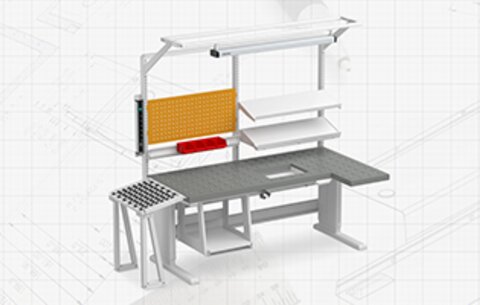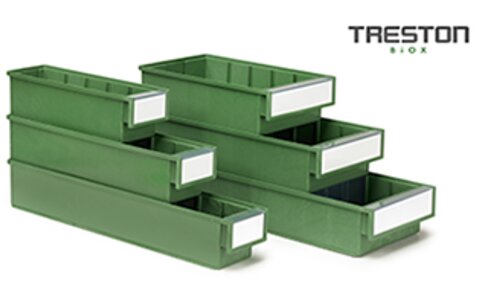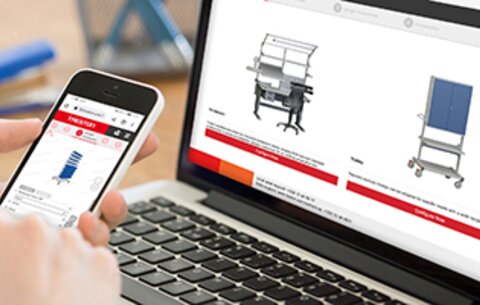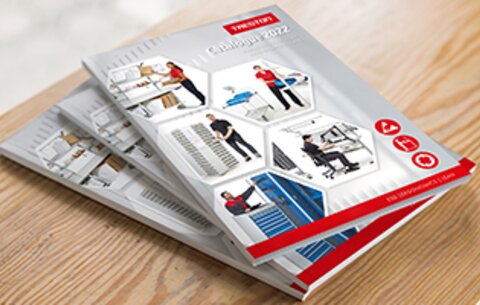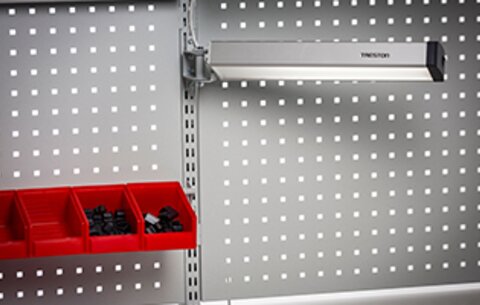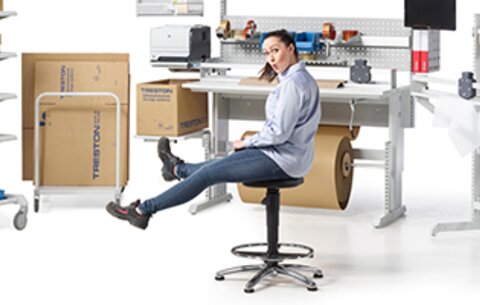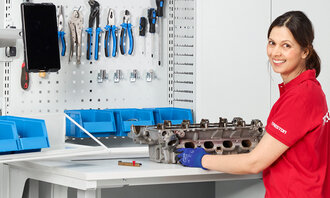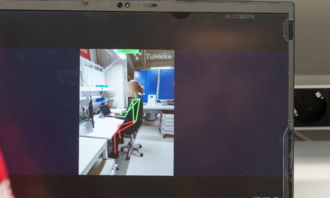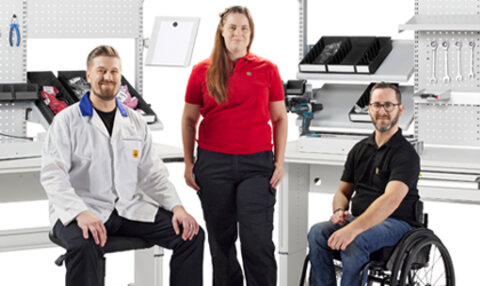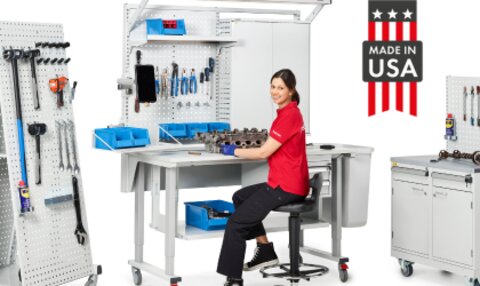

How to design an ergonomic cart? Tips and pre-configured cart layouts.
In this article, we will show you some popular, pre-configured cart layouts, tell you about the importance of ergonomics, and go through the questions that will help you design a cart that fits your needs precisely.
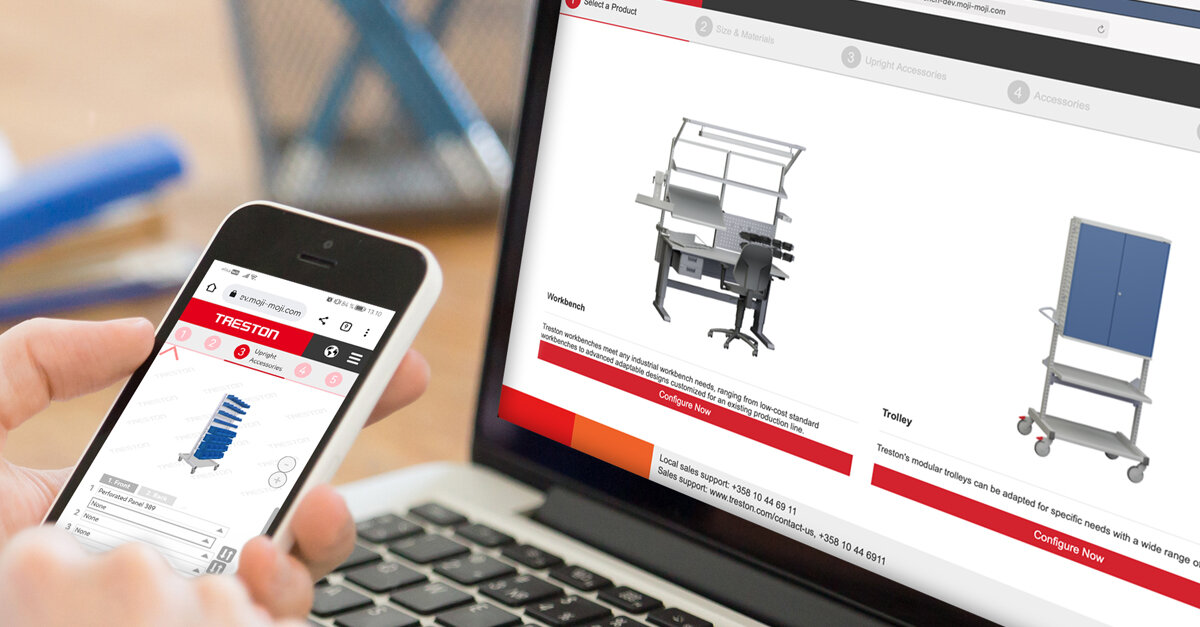
One cart – endless possibilities
Treston's selection has about twenty different basic cart models. The modular carts come with a range of accessories and can easily be customized for different jobs and working environments. In addition, with our new cart configurator, you can design a cart yourself to suit your own specific requirements.
With the cart configurator, you can design our most adaptable cart, Treston Multi Cart, your way. This one cart model enables endless different configuration possibilities. You’ll receive the design directly in your email and in the same application, you can also design your entire workstation, if you wish.
Get started with the most popular cart layouts
You can design multiple different versions of the Treston Multi Cart. To make it easier for you, we have collected the most popular versions of the cart in this article. This way you’ll get to begin your own design directly based on the popular pre-configurations.
Note: If you can't find a cart that you are looking for, take a look at the cart selection or contact our sales team. We can also customize carts and other workstation solutions.
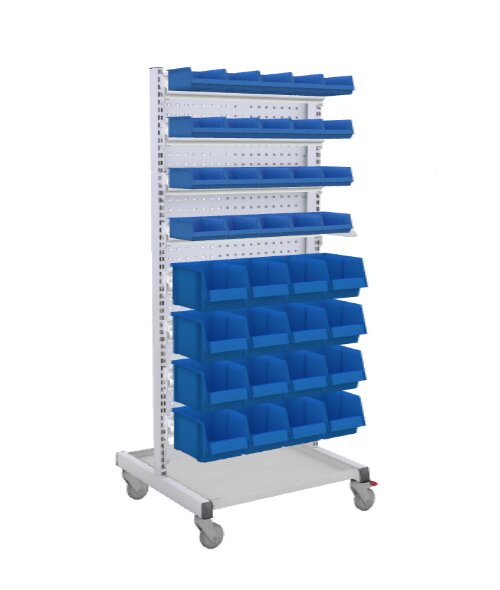
TRESTON STACKING BIN CART
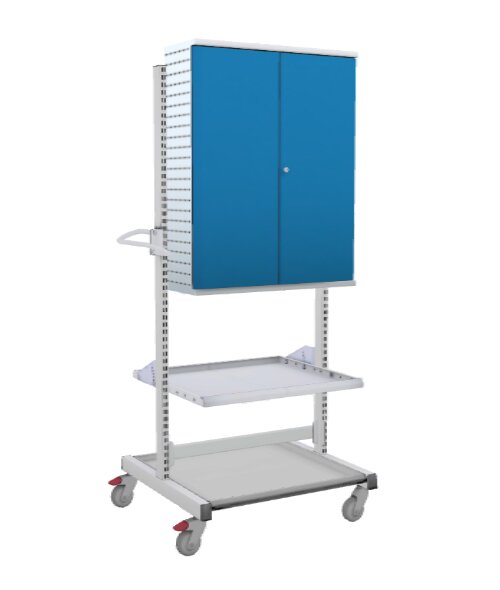
TRESTON MULTI CART WITH PERFORATED TOOL CABINET
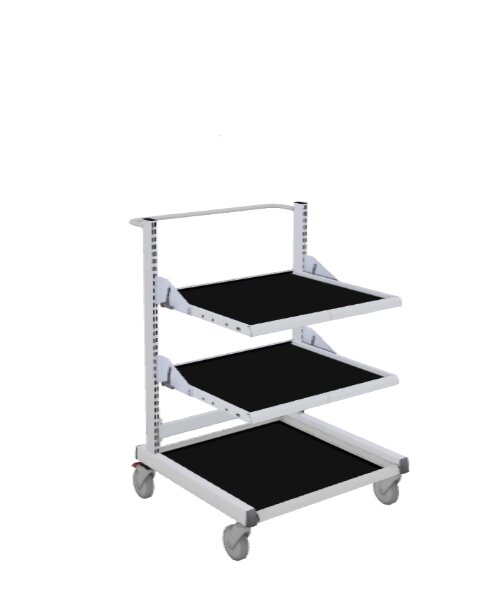
TRESTON MULTI CART WITH ADJUSTABLE SHELVES
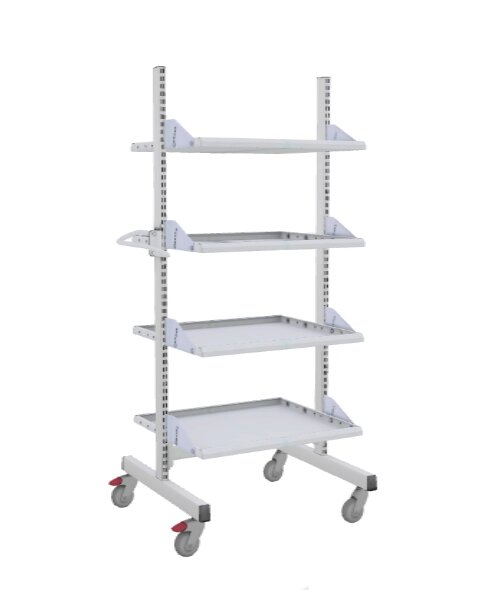
TRESTON MULTI CART WITH SHELVES
Manual handling of loads is generally considered to be an occupational risk factor for lower back and shoulder complaints
Why is ergonomics important when designing a cart?
Manual handling of loads is generally considered to be an occupational risk factor for lower back and shoulder complaints, and it is in fact the most common cause of occupational fatigue, lower back pain and lower back injuries.
Pushing and pulling are the two physical tasks most commonly related to working on and operating carts. The most common risk factors related to pushing and pulling tasks, which could hinder ergonomics, are forceful pushing/pulling, cart design that does not promote neutral body postures, wrong direction of exerted forces (e.g. pulling when you should be pushing), one-handed pushing or pulling, loads that are too heavy, and wrong handle height.
Read more about cart ergonomics: Mobile ergonomics with Treston carts
Consider these questions before you start
-
What is the purpose of the cart?
Are you looking for a trolley for a specific purpose or a multi cart that is suitable for many tasks? -
What kinds of objects are being handled in the cart?
The weight and size of the objects transported in the cart are essential factors when determining the capacity and the size of the shelves and the working surfaces. Tiltable shelves improve the accessibility of objects and facilitate their handling. -
How are the objects being handled?
If you handle unsorted and loose items, it is good to choose shelves with edges or a mat so that the items stay in place. Another option is to use a cart with side walls that are at least partially closed. -
In what kind of work environment is the cart being used?
Do you have to move through doors and over thresholds? How wide are the walkways in the space? -
What kinds of wheels does the cart require?
A high-quality wheel is a suitable size in relation to the working environment and purpose of the cart. -
What about the handles?
If the cart is going to be transported a lot, it is good to have at least one handle. -
Is the cart ergonomic?
Are there several people working at this workstation? Are there different tasks carried out that require different working postures? Make sure that the height of the cart's handles, work surfaces, and accessories can be easily adjusted to each worker and task.

